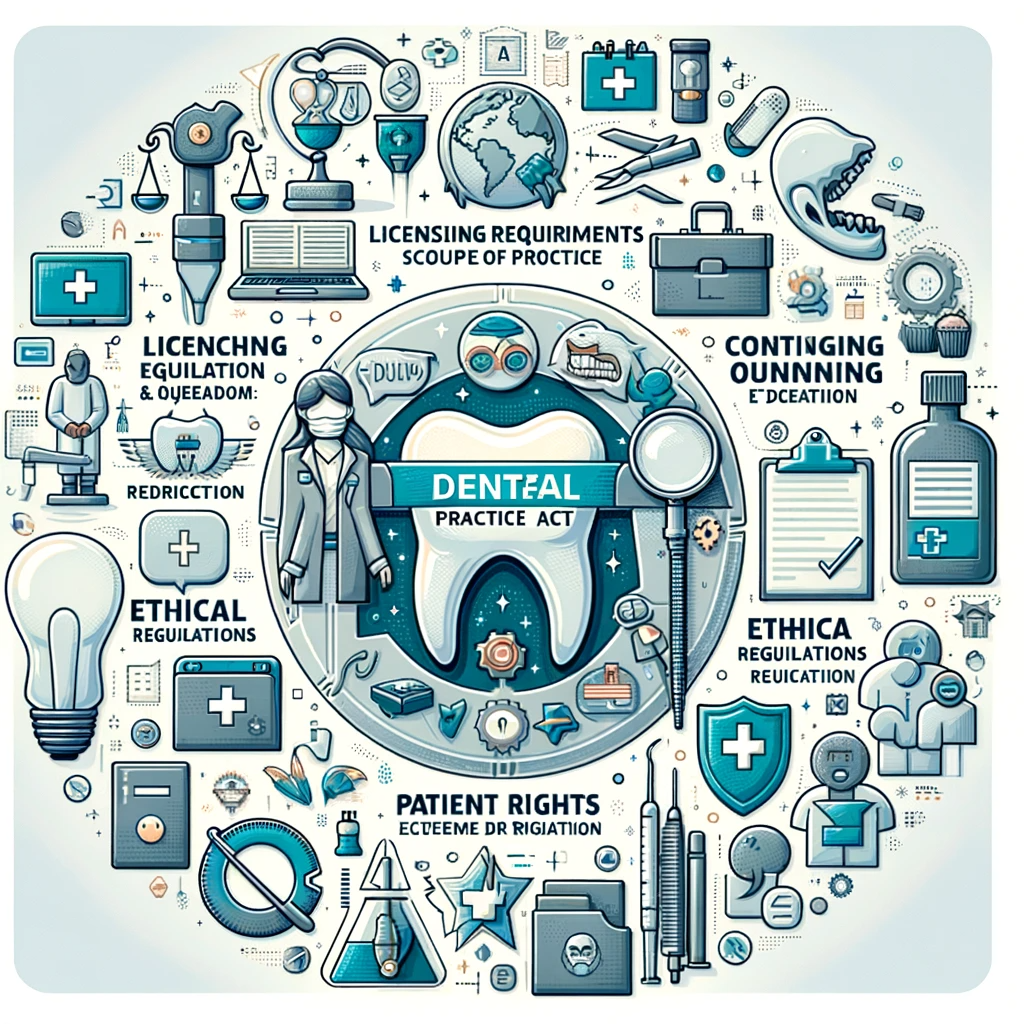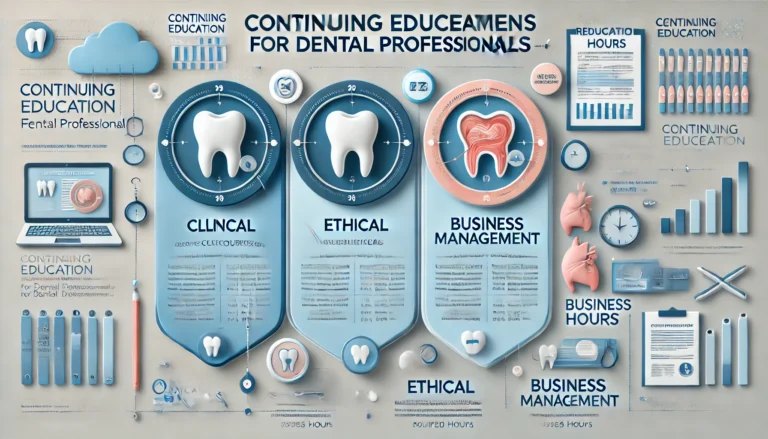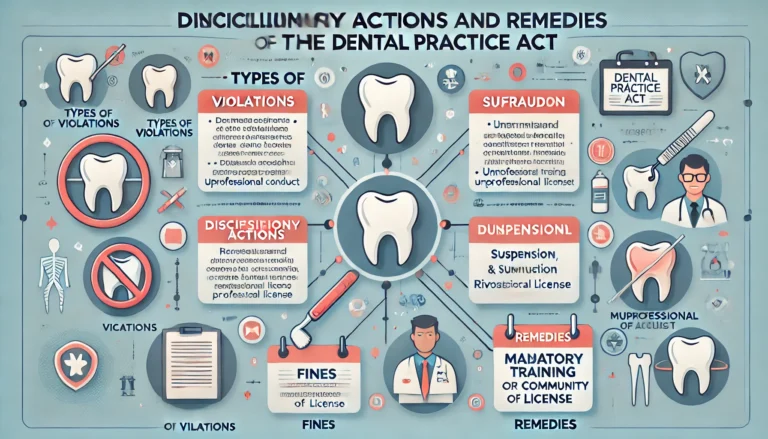Unveiling the Core Elements of a Dental Practice Act: Safeguarding Dentistry’s Integrity
Key Components of a Dental Practice Act
The vitality of the dental profession hinges on well-structured dental practice acts that govern its operations and maintain its integrity. These state-level legislations serve as the framework within which dental professionals, including dentists and dental hygienists, operate. They establish the standards for patient care, ethical behavior, and adherence to various laws and regulations. In this article, we will delve into the core components of dental practice acts, shedding light on the mechanisms that protect and uphold the reputation of dentistry.

Licensing and Scope of Practice
At the heart of any dental practice act lie the prerequisites for licensure of dental professionals. Dentists and dental hygienists must fulfill specific educational and training criteria to acquire their licenses. Additionally, these acts define the scope of practice for each profession, outlining the procedures and services they are qualified to provide.
Ethical Standards
Dental practice acts underscore the ethical obligations of dental professionals to deliver the highest standard of care to their patients. This includes preserving patient privacy and confidentiality, treating all patients without discrimination based on physical or mental disabilities, and ensuring that treatment decisions prioritize the patient’s well-being.
Continuing Education
To stay abreast of the latest advancements in the field of dentistry, dental professionals must engage in ongoing education. Dental practice acts often stipulate the minimum number of continuing education hours or credits required for license renewal, guaranteeing that professionals remain current in their respective areas.
Patient Records and Confidentiality
Dental practice acts emphasize the importance of maintaining accurate patient records and safeguarding patient confidentiality. These acts also address the proper handling and secure storage of patient records, ensuring compliance with laws such as the Health Insurance Portability and Accountability Act (HIPAA).
Infection Control and Safety
Infection control is of paramount importance in dental care. Dental practice acts mandate stringent protocols to prevent the spread of infectious diseases within dental offices. Adherence to guidelines established by federal laws like the Occupational Safety and Health Act (OSHA) is essential to ensure the safety of both dental professionals and patients.
Disciplinary Actions and Reporting
Dental practice acts establish dental boards or regulatory bodies responsible for enforcing the provisions of the act. These boards have the authority to investigate complaints against dental professionals and take disciplinary actions when necessary. Failure to comply with the terms and conditions of the act can result in penalties, including the revocation or suspension of licenses.
Patient Abandonment
Patient abandonment is a serious ethical and legal concern in dentistry. Dental practice acts define what constitutes patient abandonment and under what circumstances it may occur. Dental professionals are expected to follow established protocols when transferring patients to another dentist or discontinuing care.
Compliance with Federal and State Laws
Dental practice acts ensure that dental practices comply with both federal and state laws. This includes adherence to regulations regarding controlled substances, reporting acts, and other applicable laws that govern the delivery of dental care.
Privacy and Security
The privacy and security of patient information are paramount. Dental practice acts mandate the implementation of privacy and security measures to protect patient records, including electronic health records, and ensure compliance with the Health Insurance Portability and Accountability Act (HIPAA).
Termination of Employment Relationships
The terms and conditions of employment relationships between dental professionals and their dental offices are addressed in dental practice acts. These acts provide guidelines for the termination of employment, safeguarding the rights of both parties.
Conclusion
Dental practice acts serve as the cornerstone of the dental profession, shaping ethical standards, patient care, and legal compliance within the field of dentistry. By emphasizing licensing, ethical standards, continuing education, and patient confidentiality, these acts ensure that dental professionals deliver top-tier care while upholding the integrity of the profession. Understanding and adhering to the essential components of dental practice acts is not only a legal obligation but also a commitment to providing exceptional dental services and preserving patient trust.



